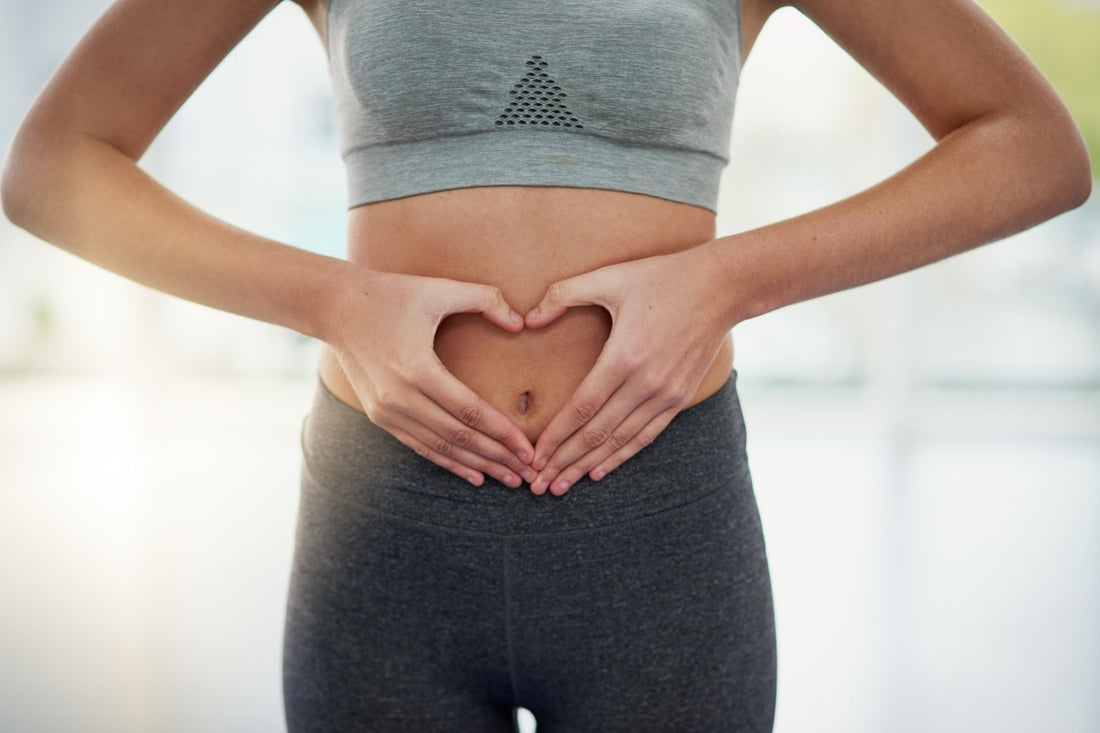Did you know that what's happening in your gut could directly affect your brain? It's true – the gut-brain connection is a fascinating and emerging field of research that is shedding light on the powerful impact our gut health has on our mental health. In particular, the role of probiotics and prebiotics in maintaining a healthy gut and promoting positive mental well-being is becoming increasingly clear.
Probiotics are live bacteria and yeasts that are beneficial for our digestive system, while prebiotics are non-digestible fibers that feed and support the growth of these good bacteria. Together, they work in harmony to promote a healthy gut microbiome, which in turn influences our brain function and mood.
Research has shown that an imbalance in the gut microbiome can contribute to the development of mental health disorders such as depression, anxiety, and even cognitive decline. By incorporating probiotics and prebiotics into our diets, we can help restore the balance of beneficial bacteria in our gut, potentially improving our mental health.
In this article, we explore the fascinating connection between our gut and brain, and how probiotics and prebiotics can play a vital role in supporting our mental well-being. Get ready to discover the power of a healthy gut for a happy mind.
What are probiotics and prebiotics?
Probiotics are live microorganisms that provide health benefits when consumed in adequate amounts. They are commonly found in fermented foods such as yogurt, kefir, sauerkraut, and kimchi. These friendly bacteria help maintain a balanced gut microbiome by crowding out harmful bacteria and promoting the growth of beneficial ones.
Prebiotics, on the other hand, are non-digestible fibers that serve as food for probiotics. They are found in foods such as bananas, onions, garlic, raspberries and whole grains. Prebiotics pass through the small intestine undigested and reach the colon where they are fermented by probiotics, producing beneficial compounds that support gut health.
Probiotics and prebiotics work together symbiotically to enhance the diversity and abundance of beneficial bacteria in the gut, leading to improved gut health and overall well-being.

The role of gut health in mental health
The gut and brain are intricately connected through a bidirectional communication system known as the gut-brain axis. This complex network involves the central nervous system, the enteric nervous system (the "second brain" in our gut), and the gut microbiota.
The gut microbiota, which consists of trillions of microorganisms, plays a crucial role in maintaining the integrity of the gut barrier, regulating inflammation, and producing neurotransmitters and other bioactive compounds that influence brain function and behavior.
Research has shown that disruptions in the gut microbiome, such as an overgrowth of harmful bacteria or a decrease in beneficial bacteria, can lead to increased inflammation, impaired neurotransmitter production, and compromised gut barrier function. These factors have been linked to the development of mental health disorders, including depression, anxiety, and even neurodegenerative diseases.
Research on the impact of probiotics on mental health
Numerous studies have investigated the effects of probiotics on mental health, with promising results. For example, a randomized controlled trial found that participants who took a specific strain of probiotic experienced significant reductions in depressive symptoms compared to those who received a placebo.
Another study examined the effects of probiotics on anxiety levels in healthy individuals. The results showed that participants who consumed a probiotic supplement for several weeks had reduced anxiety compared to those who took a placebo.
The mechanisms behind these positive effects are still being explored, but it is believed that probiotics can modulate neurotransmitter production, reduce inflammation, and improve gut barrier function, all of which contribute to improved mental well-being.
Research on the impact of prebiotics on mental health
While probiotics have received more attention in the research community, prebiotics also show promise in supporting mental health. A study published in the journal Psychopharmacology found that participants who consumed a prebiotic supplement for three weeks had reduced cortisol levels, indicating a decrease in stress.
Another study investigated the effects of prebiotics on emotional processing in healthy individuals. The findings suggested that prebiotic supplementation improved the processing of positive and negative emotional stimuli, potentially enhancing emotional well-being.
These studies highlight the potential of prebiotics to influence brain function and mood, although further research is needed to fully understand the mechanisms involved.

How probiotics and prebiotics can improve mood and reduce anxiety
The beneficial effects of probiotics and prebiotics on mental health can be attributed to several factors. First, these dietary interventions promote a healthy gut microbiome by increasing the abundance and diversity of beneficial bacteria. This, in turn, enhances the production of neurotransmitters such as serotonin, which is often referred to as the "happy hormone."
Second, probiotics and prebiotics have anti-inflammatory properties, helping to reduce systemic inflammation that has been linked to the development of mental health disorders. By modulating the immune response and reducing inflammation in the gut, these interventions may indirectly improve brain function and mood.
Lastly, probiotics and prebiotics support gut barrier function, preventing the leakage of toxins into the bloodstream. This is important because a compromised gut barrier, often referred to as "leaky gut," has been associated with increased inflammation and a higher risk of mental health disorders.

Incorporating probiotics and prebiotics into your diet
To reap the benefits of probiotics and prebiotics, it's important to incorporate them into your daily diet. Probiotic-rich foods include yogurt, kefir, sauerkraut, kimchi, miso, and tempeh. Aim to include a variety of fermented foods in your meals to ensure a diverse array of beneficial bacteria.
Prebiotic-rich foods include bananas, onions, garlic, asparagus, oats, and legumes. These foods contain soluble fibers that nourish the probiotics in your gut, promoting their growth and activity.
If you prefer a more convenient option, you can also consider taking probiotic and prebiotic supplements. Look for high-quality products that contain specific strains of bacteria and fibers known to have beneficial effects on gut health.
Choosing the right probiotic and prebiotic supplements
When selecting probiotic supplements, it's important to consider the specific strains of bacteria they contain. Different strains have different effects on the gut microbiome and may target specific health issues. Look for products that contain strains such as Lactobacillus and Bifidobacterium, which are well-studied and known to have positive effects on gut health.
For prebiotic supplements, opt for those that contain fibers such as inulin, oligofructose, or resistant starch. These fibers have been shown to selectively stimulate the growth of beneficial bacteria in the gut.
As with any supplement, it's always a good idea to consult with a healthcare professional before starting a new regimen, especially if you have any underlying health conditions or are taking medication.

Other lifestyle factors that support a healthy gut-brain connection
In addition to incorporating probiotics and prebiotics into your diet, there are other lifestyle factors that can support a healthy gut-brain connection. These include:
1-Eating a balanced diet rich in fruits, vegetables, healthy fats, and organic, grass-fed proteins:
“80% of your body composition is determined by how you eat. The concept of “calories in, calories out” fails to account for how different foods influence your appetite and metabolic hormones. Ketones are internally manufactured energy source, a byproduct of fat metabolism in the liver when blood glucose levels are low due to disciplined restriction of dietary carbs. The brain, heart, and skeletal muscles use ketones in a similar manner to glucose, but it burns with much less oxidative stress than glucose, and actually delivers a potent anti-inflammatory effect. Ketones were a critical component of evolution, enabling humans to survive during periods of insufficient dietary calories. Today, breaking science shows ketones have incredible promise for fat loss, improving cognitive conditions and seizures, boosting endurance performance, and fighting cancer. Becoming keto-and fat- adapted means that you are efficient at burning internal sources of energy and no longer dependent upon regular meals to sustain energy or concentration." - Mark Sisson author of The Primal Blueprint
2- Minimizing the consumption of processed foods, added sugars, and artificial additives.
3- Managing stress through techniques such as meditation, yoga, or deep breathing exercises.
4- Getting regular exercise, which has been shown to positively impact gut microbiota diversity.
5- Prioritizing sleep and establishing a consistent sleep routine.
6- Avoiding excessive alcohol consumption, which can disrupt the gut microbiome.
By adopting these lifestyle habits, you can create an optimal environment for a healthy gut-brain connection and support your mental well-being.
Hunghee Ancestral Energy is packed with the most bioavailable nutrients for peak performance and adventure - nutrition as nature intended. Whether you are a professional athlete, outdoor adventurer, or just hangry, Hunghee’s on-the-go 1oz superfood energy packs make it easy and convenient to ensure sustained energy for any activity. Made with animal-based nutrients including organic grass-fed ghee, local raw honey, and ancient sea salt, Hunghee provides a smooth release of energy. So next time you hit the trail or prepare for a long day, try a Hunghee!
Disclaimer: This content is for informational purposes only and is not intended as medical advice. Please consult your healthcare provider for advice about a specific medical condition or before starting any new fitness or nutritional program.

